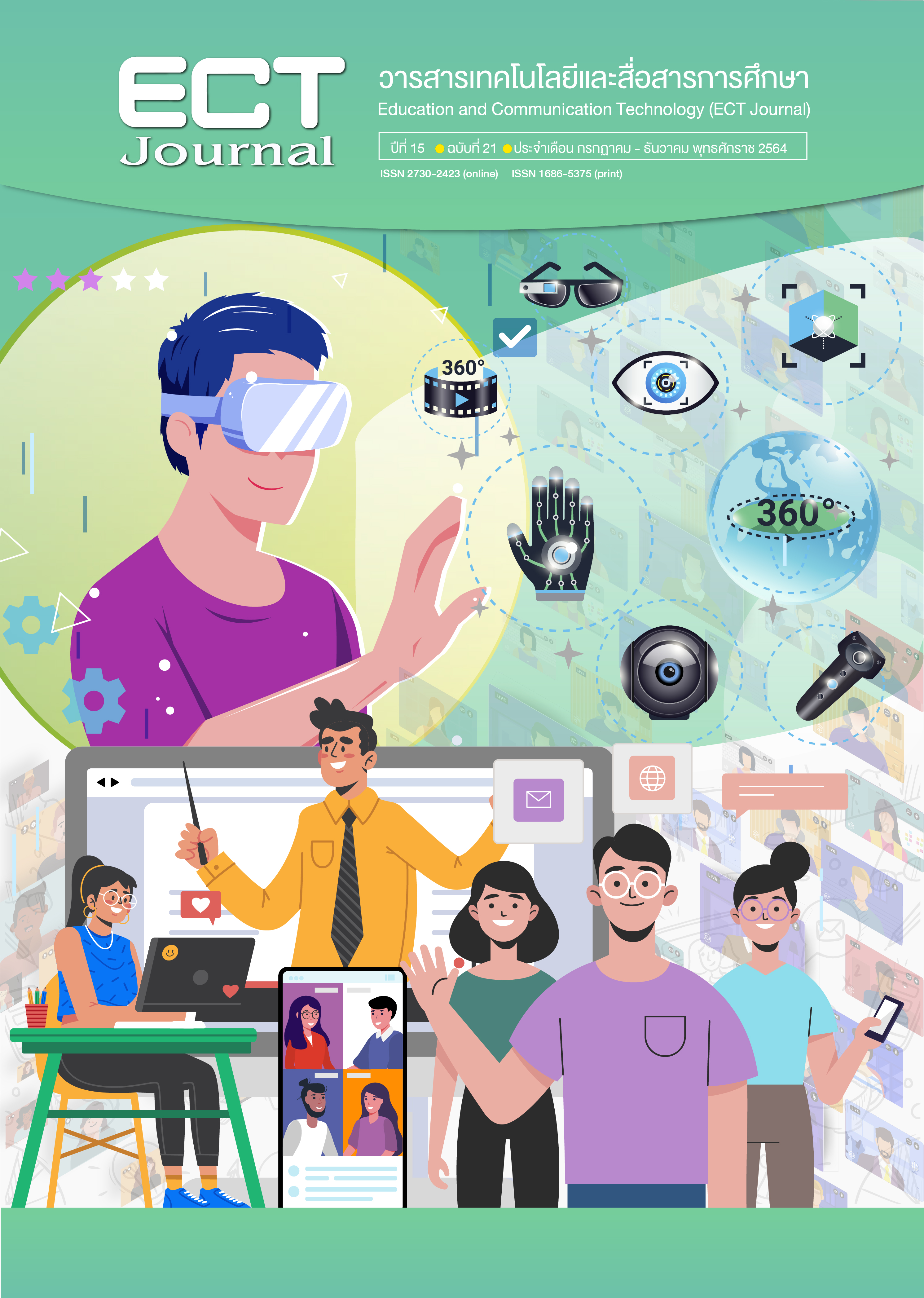Learning Management that Promotes Emotional Intelligence with Computational Thinking Skills and Coding
Keywords:
Emotional Intelligence, Computational Thinking, CodingAbstract
Computational thinking skills are the process of problem-solving with rational thinking to come up with a step-by-step approach to finding answers. It consists of dividing a large problem into sub-problem, form consideration, abstract thinking, and design of the solution algorithm. These are skills for programming or coding, which are included in the Technology course (Computing Science). In addition to improving learners’ Intelligence Quotient (IQ), it also results in systematic thinking and proper behavior, known as Emotional Intelligence, which consists of self-awareness, self-regulation, motivation, empathy, and social skills. These components can be promoted through computational thinking skills and coding activities.
References
สถาบันส่งเสริมการสอนวิทยาศาสตร์และเทคโนโลยี. (2560). คู่มือการใช้หลักสูตรรายวิชาพื้นฐานวิทยาศาสตร์ สาระเทคโนโลยี (วิทยาการคำนวณ). http://oho.ipst.ac.th/cs-curriculum-teacher-guide/
Bradberry, T. (2020). Why you need emotional intelligence to succeed. TalentSmart. https://www.talentsmarteq.com/articles/Why-You-Need-Emotional-Intelligence-To-Succeed-389993854-p-1.html
Fuster, A., Pertegal, M. L., Jimeno, M. A., Azorín, L. J., Rico, M. L., & Restrepo-Calle, F. (2019). Evaluating impact on motivation and academic performance of a game-based learning experience using Kahoot. Frontiers in Psychology, 10, 2843. https://doi.org/10.3389/fpsyg.2019.02843
Goleman, D. (1998). Working with emotional intelligence. Bloomsbury Publishing.
Gordon, S. (2021). How teaching kids empathy can prevent bullying. Verywell Family. https://www.verywellfamily.com/teach-empathy-and-prevent-bullying-460744
Jones, S., Brush, K., Bailey, R., Brion-Meisels, G., McIntyre, J., Kahn, J., Nelson, B., & Stickle, L. (2018). How to build empathy and strengthen your school community. Harvard Graduate School of Education. https://mcc.gse.harvard.edu/resources-for-educators/how-build-empathy-strengthen-school-community
Loksa, D., & Ko, A. J. (2016). The role of self-regulation in programming problem solving process and success. In Proceedings of the 2016 ACM Conference on International Computing Education Research (pp. 83-91). Association for Computing Machinery. https://doi.org/10.1145/2960310.2960334
Mayer, J. D., & Salovey, P. (1997). What is emotional intelligence? In P. Salovey & D. J. Sluyter (Eds.), Emotional development and emotional intelligence: Educational implications (pp. 3-31). Basic Books.
Rafique, M., Hassan, M. A., Jaleel, A., Khalid, H., & Bano, G. A. (2020). Computation model for learning programming and emotional intelligence. IEEE Access, 8, 149616-149629. https://doi.org/10.1109/ACCESS.2020.3015533
Trigueros, R., Sanchez-Sanchez, E., Mercader, I., Aguilar-Parra, J. M., López-Liria, R., Morales-Gázquez, M. J., Fernández-Campoy, J. M., & Rocamora, P. (2020). Relationship between emotional intelligence, social skills and peer harassment: A study with high school students. International Journal of Environmental Research and Public Health, 17(12), Article 4208. https://doi.org/10.3390/ijerph17124208
Downloads
Published
How to Cite
Issue
Section
License
Copyright (c) 2021 มหาวิทยาลัยสุโขทัยธรรมาธิราช

This work is licensed under a Creative Commons Attribution-NonCommercial-NoDerivatives 4.0 International License.
1. ทรรศนะและข้อคิดเห็นใด ๆ ที่ปรากฏอยู่ในวารสาร ECT Education and Communication Technology Journal เป็นของผู้เขียนโดยเฉพาะ สำนักเทคโนโลยีการศึกษา มหาวิทยาลัยสุโขทัยธรรมาธิราช และกองบรรณาธิการไม่จำเป็นต้องเห็นพ้องด้วย
2. กองบรรณาธิการของสงวนลิขสิทธิ์ในการบรรณาธิการข้อเขียนทุกชิ้น เพื่อความเหมาะสมในการจัดพิมพ์เผยแพร่






